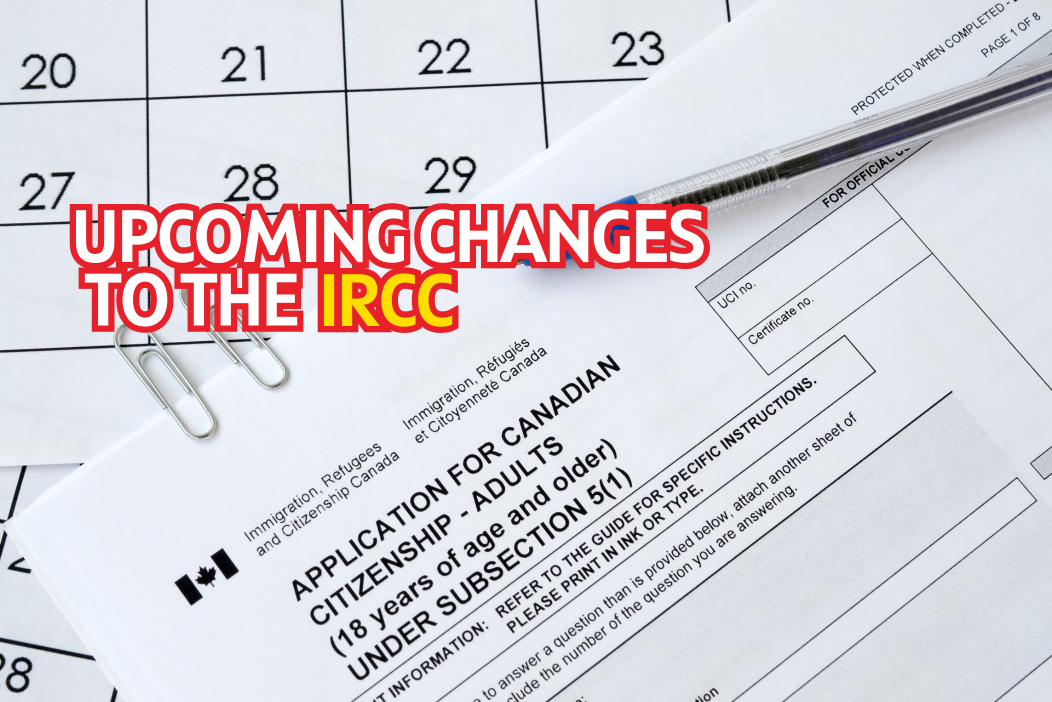The progressively higher immigration targets have placed an enormous strain on a Canadian immigration system in dire need of reform. In 2023, the IRCC is set to fulfil its record 465,000 planned admissions, even as it accumulates more backlogs in its inventories and suffering servicing standards.
Much of the proposed changes discussed in this article can be credited to Neil Yeates, the former Deputy Minister of the IRCC from 2009-2013, who, in his IRCC Organizational Review Report, called for major changes to a ‘broken’ organizational model that was no longer fit for the purpose.
The IRCC’s situation has led to a movement for reform within the organization, headed by Christiane Fox, the Deputy Minister of the IRCC, who confirmed in an interview with Paul Wells that her organization will implement many of the recommendations laid out by the Yeates Report.
Issues Identified by the Yeates Report
In his Report, the former Deputy Minister was very critical of the IRCC’s organizational model, calling it broken and “held together by the hard work and dedication of the staff.” He identified a lack of department-wide planning and an Organizational Structure that isn’t organized along business lines.
The Report identified issues within and proposed reforms in four areas:
- Organizational Structure- The criticism of the IRCC’s organizational Structure was that it was not organized along business lines.
- Governance- The IRCC’s governance was criticized for its bloated committees when most decision-making occurred in meetings between the Deputy Minister’s office and an Assistant Deputy Minister.
- Management Systems- The Report called for better planning and reporting, citing as an example the previous practice of departments reporting their progress against targets every three months.
- Culture- While acknowledging the commitment of the IRCC staff to mitigate shortcomings in its organizational and management structures, the Report highlighted the conflict faced by staff between enforcing the Immigration and Refugee Protection Act (IRPA) and prioritizing client services. Officers leaned one of two ways, with some displaying unconscious bias when enforcing the IRPA’s framework to accept or deny applicants. In contrast, others waived requirements and compromised with clients to enhance service quality.
Key Challenges
The Report attributed most of the current issues to the IRCC’s operating environment growing even more “complex, unstable and frenetic,”-alluding to the unprecedented growth in immigration levels and department staff (5,217 staff in 2013 compared to 12,721 in 2023). Other challenges mentioned in the Report include:
- The evolving nature of work, as seen during the pandemic and the rise in remote work, can compromise the organization and work culture of the IRCC.
- The growing demand for IRCC’s services that regularly exceeds processing capacity and leads to backlogs within their inventories.
- The rapid growth of the IRCC means that it has outgrown most of its former organizational Structure.
- The need for a Comprehensive Immigration policy review.
- The need for Digital transformation
- Global conflicts and emergencies like climate change that can spike global migration.
The Recommendations of the Yeates Report
The Report recommended reforms in four areas, namely:
- Organizational Structure– where a transition to business line organization could massively increase efficiency.
- Governance– Establish new committees where necessary and review the responsibilities of each.
- Management Systems– More robust planning and reporting
- Culture– Review of staff training and involvement of the IRCC’s diverse communities in governance.
Changes to the IRCC
The interview with Paul Wells also yielded some answers to the upcoming changes within the IRCC. In the words of Christiane Fox, the current Deputy minister, “The model is now just more of a business-line model.” As part of the new Organizational Model, the IRCC will be reorganized into sectors, namely:
- Asylum and Refugee Resettlement
- Citizenship and Passport
- Chief Financial Officer
- Chief Information Officer
- Client Service, Innovation and Chief Digital Officer
- Communications
- Corporate Services
- Economic, Family and Social Migration
- International Affairs and Crisis Response
- Migration Integrity
- Service Delivery
- Settlement Integration and Francophone Affairs
- Strategic Policy
The changes were made keeping in mind the requirements for:
- A stronger crisis-planning sector using the lessons learned from the Afghanistan and Ukraine crises of recent years. A dedicated crisis planning group will prevent other business lines from suffering with each world event.
- An Asylum and Refugee sector within the department to help support the most vulnerable people globally. Yeates had previously called for establishing an Asylum System Management Board at the Deputy Minister level in an earlier report titled ‘A Systems Management Approach to Asylum (2018).’
- A Sector focused on Economic Immigration and Family that will interact with the business community on labour shortages, skills missions and talent needs.
- A Sector on Francophone immigration that can identify French-speaking sources of immigration and the needs of these newcomers.
- More ‘client-focused’ work. This relates to the internal workings of the IRCC and the emphasis placed on inventory and backlogs. The changes are meant to restore clients’ humanity without reducing them to inventories.



